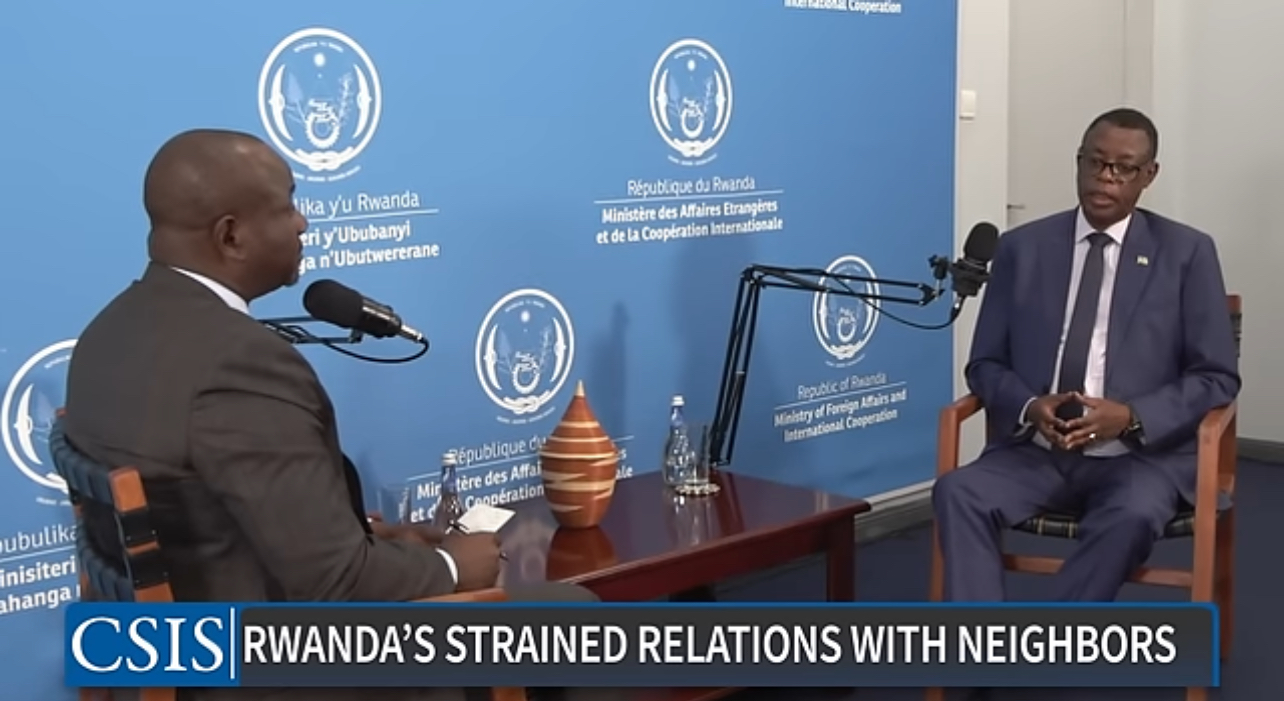In a rare and candid interview, Rtd General James Kabarebe, Rwanda’s Minister of State for Foreign Affairs, laid bare the complex security and diplomatic landscape facing Rwanda in East Africa.
From tense relations with the Democratic Republic of Congo (DRC) and Burundi to the country’s commitment to unity and peace, Kabarebe shared insights into Rwanda’s challenges and resilience. His reflections paint a picture of a nation determined to secure its borders and foster regional cooperation despite historical grievances, political provocations, and international misconceptions. Here are the top 10 takeaways from Kabarebe’s thought-provoking analysis on Rwanda’s journey and its evolving role in East Africa.
1.Post-Genocide Unity as Rwanda’s Foundation: Kabarebe stressed that rebuilding unity after the 1994 genocide against the Tutsi was Rwanda’s top priority. The genocide devastated the nation, leaving more than a million dead and creating deep divisions. Rwanda’s approach to recovery included fostering a strong national identity, establishing Gacaca courts for community-led justice, and focusing on a zero-tolerance policy toward ethnic divisions. Kabarebe described this unity as the bedrock of Rwanda’s development, crediting it for the country’s rapid progress in security, healthcare, and economic growth.
2.Complex Relations with the Democratic Republic of Congo (DRC): Rwanda’s history with the DRC is marked by mutual mistrust stemming from Rwanda’s interventions in the DRC in the late 1990s and the ongoing presence of hostile armed groups, including the FDLR. Kabarebe defended Rwanda’s 1996 intervention, noting that the DRC had allowed genocidal forces to operate freely in its eastern territories, posing a direct threat to Rwanda. While Rwanda continues to advocate for disarmament of these groups, Kabarebe acknowledged that diplomatic efforts are hindered by the DRC’s instability and complex internal politics.
3.Anti-Rwanda Sentiment as a Political Tool in DRC: Kabarebe criticized the DRC’s leadership for using anti-Rwanda rhetoric to bolster political power and distract from domestic issues. He noted that the anti-Rwanda sentiment is particularly harmful to the Tutsi population in the DRC, who face rising hostility. This narrative, Kabarebe argued, has worsened since President Felix Tshisekedi took office, with Tshisekedi at one point suggesting the possibility of ousting President Kagame if Rwanda continued what he labeled “interference” in DRC affairs. Kabarebe views this as a divisive and dangerous strategy that complicates regional peace efforts.
4.Tensions Over the M23 Rebel Group: Kabarebe addressed the contentious issue of the M23 rebel group, which has periodically clashed with DRC forces in eastern Congo. Rwanda has been accused of supporting the group, which it has repeatedly denied. Kabarebe clarified that Rwanda disarmed M23 fighters in 2013 and is not involved with the group, placing responsibility on the DRC to address the issue. He criticized the DRC’s exclusion of the M23 in peace talks, calling it a missed opportunity for sustainable peace in the region.
5.Historical Ties and Current Tensions with Uganda: Rwanda’s relationship with Uganda has historically been close, with many Rwandan leaders, including President Kagame, spending time in Uganda during the fight to overthrow Rwanda’s pre-genocide government. However, recent years have seen periodic tensions, including allegations of espionage and support for anti-Rwanda factions by Uganda. Kabarebe described these issues as “squabbles” that both countries have largely resolved through diplomacy. He credited the nations’ deep cultural and political ties for allowing them to address conflicts quickly.
6.Shared Heritage but Recent Strain with Burundi and Role in the DRC Conflict: Kabarebe described Burundi as a “twin nation” to Rwanda due to shared language, culture, and history. However, relations became strained after a 2015 coup attempt in Burundi, which led to refugees and alleged coup plotters fleeing to Rwanda. Although Rwanda disarmed and sheltered these individuals, Burundi accused Rwanda of interference. Kabarebe noted that Burundi’s President Evariste Ndayishimiye has even suggested a possible intervention against Kagame if Rwanda “meddles” in Burundian affairs.
Additionally, Kabarebe criticized Burundi’s recent role in the DRC conflict, where it has aligned with the DRC in military operations targeting the M23 rebel group. Burundi’s partnership with the DRC includes cooperation with groups that have ties to anti-Rwanda forces, including factions hostile to Tutsis. Kabarebe called Burundi’s involvement “a betrayal,” particularly as this cooperation indirectly supports forces that threaten Rwanda’s security.
7.Rwanda’s Frustration with International Misrepresentation: Kabarebe voiced frustration over how Rwanda is often portrayed in international media and diplomatic circles, especially regarding its defense and security actions. He argued that Rwanda’s efforts to protect its borders and citizens are often misinterpreted as aggression. This misrepresentation, he said, diverts Rwanda’s focus and detracts from its contributions to regional security and economic progress. Kabarebe emphasized that Rwanda seeks peace and stability, contrary to the aggressive image sometimes portrayed abroad.
8.Rwanda’s Support for East African Community (EAC) Integration: Kabarebe sees regional integration through the East African Community (EAC) as crucial for fostering cooperation, economic growth, and security. Rwanda actively participates in EAC initiatives like the customs union and common market, believing that closer integration will improve economic opportunities for all member states. Kabarebe acknowledged that integration faces challenges due to differences among member countries but emphasized that Rwanda is committed to advancing shared security and economic goals across East Africa.
9.Focus on Peace and Regional Economic Stability: Kabarebe reiterated Rwanda’s commitment to peaceful coexistence with its neighbors, stressing that stability directly benefits Rwanda’s economy. He explained that Rwanda’s security measures are focused on protecting borders rather than pursuing any regional dominance. Peace, he noted, brings mutual gains in trade, tourism, and investment, which Rwanda highly values as a landlocked country dependent on secure regional connections.
10.Hope for Future Regional Cooperation: Kabarebe emphasized that regional stability requires collective dedication from East African leaders. Despite the setbacks and security challenges, he remains hopeful that regional leaders will eventually prioritize unity and shared goals over political divisions. He called for a spirit of mutual respect and cooperation, with leaders working together to create a prosperous and peaceful East Africa, as part of Rwanda’s broader vision for regional stability and development.
Full interview below




















